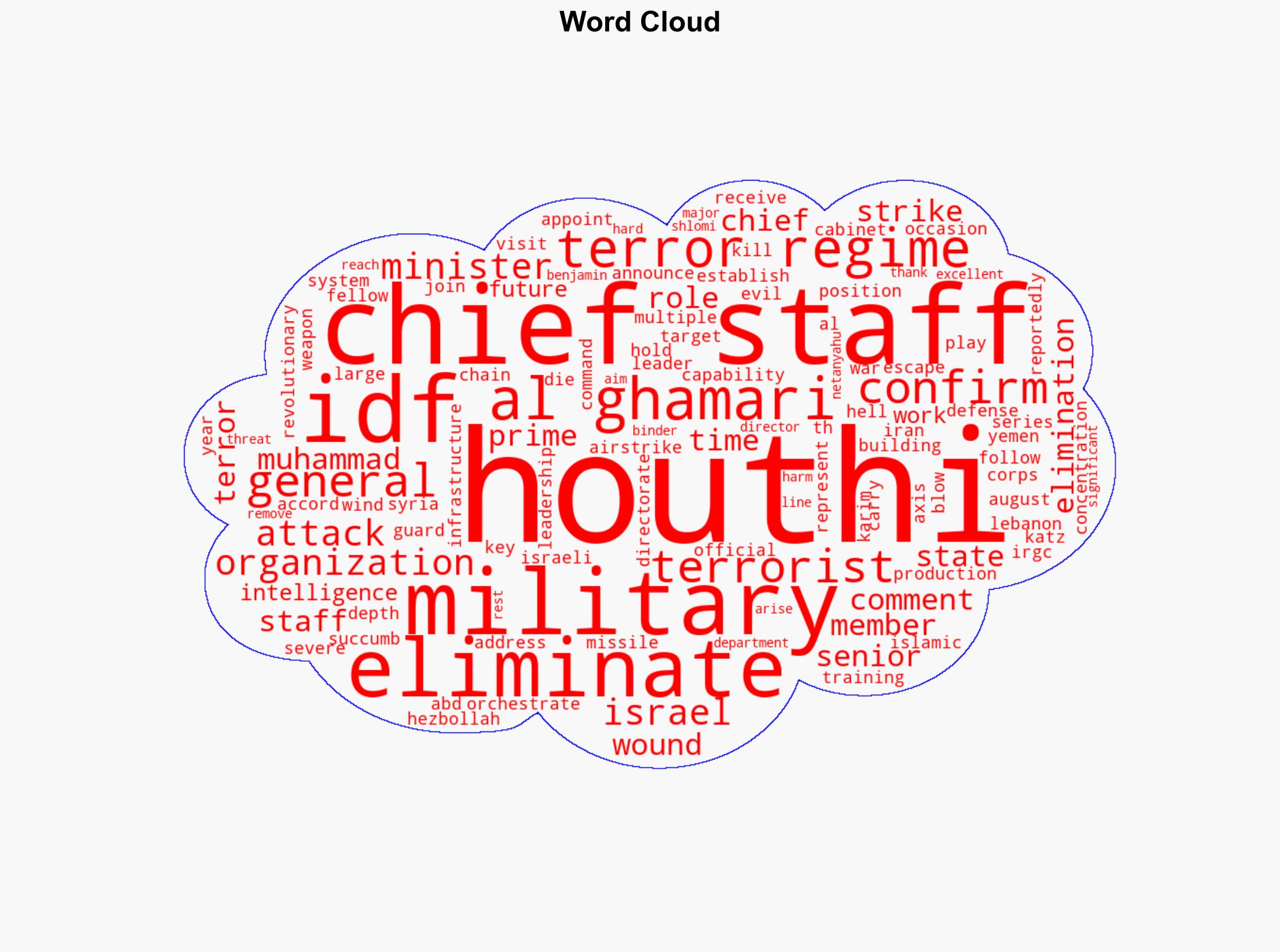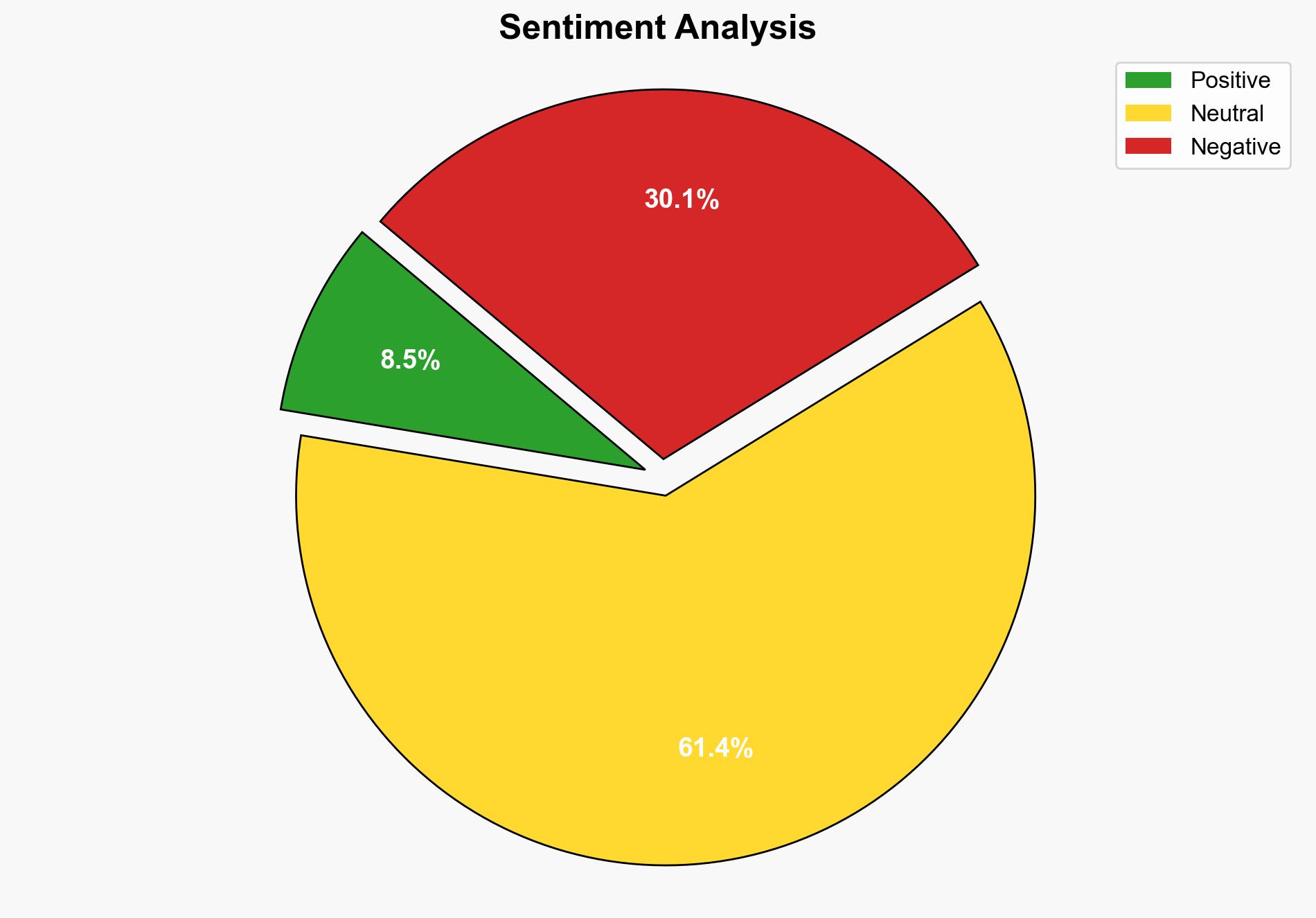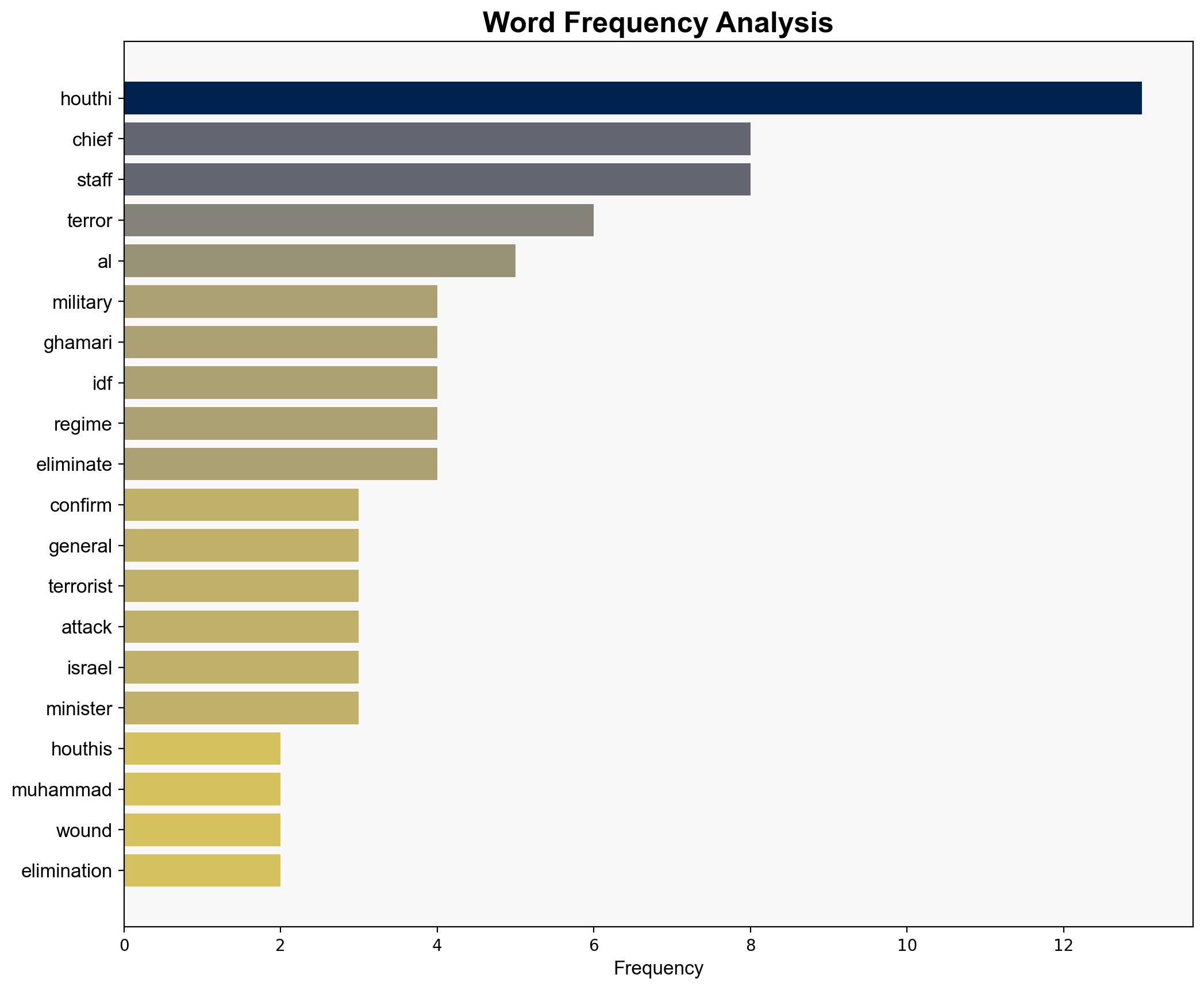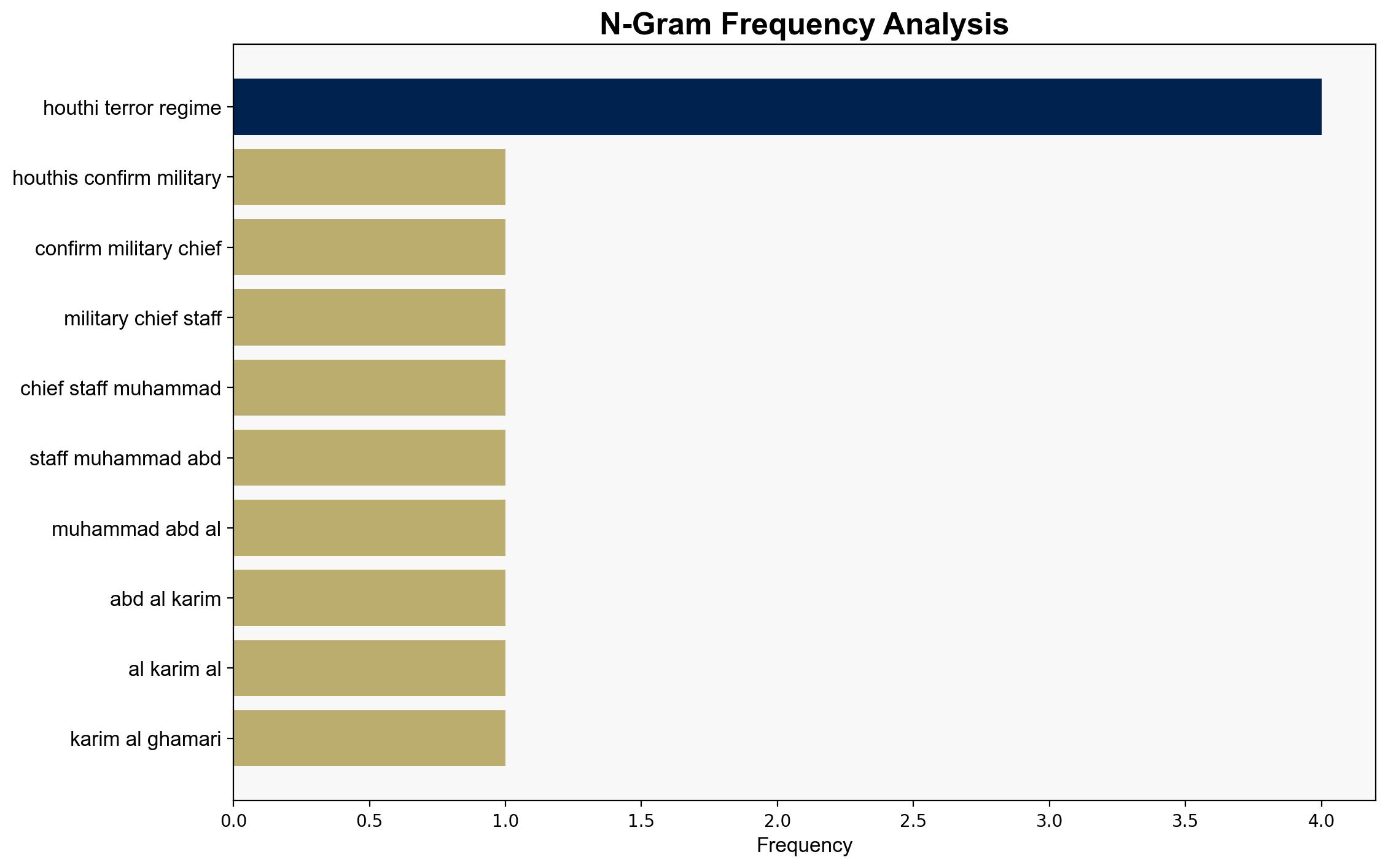Houthis Chief of Staff dies from wounds sustained in Israeli strike – Israelnationalnews.com
Published on: 2025-10-16
Intelligence Report: Houthis Chief of Staff dies from wounds sustained in Israeli strike – Israelnationalnews.com
1. BLUF (Bottom Line Up Front)
The death of Muhammad Abd al-Karim al-Ghamari, the Houthis’ Chief of Staff, following an Israeli airstrike, represents a significant disruption to the Houthis’ military capabilities. The most supported hypothesis is that this event will temporarily weaken the Houthis’ operational effectiveness. Confidence in this assessment is moderate due to potential information gaps and the possibility of rapid reorganization by the Houthis. Recommended action includes monitoring for retaliatory actions and shifts in regional alliances.
2. Competing Hypotheses
1. **Hypothesis A**: The elimination of al-Ghamari will significantly degrade the Houthis’ military capabilities and disrupt their command structure, leading to a temporary reduction in their operational effectiveness.
2. **Hypothesis B**: The Houthis will quickly adapt to the loss of al-Ghamari, maintaining their operational capabilities with minimal disruption due to pre-existing contingency plans and support from allied groups like Hezbollah and the IRGC.
Using ACH 2.0, Hypothesis A is better supported by the direct impact of losing a key military leader and the historical difficulty of quickly replacing such figures. However, Hypothesis B is plausible given the Houthis’ history of resilience and external support.
3. Key Assumptions and Red Flags
– **Assumptions**: It is assumed that al-Ghamari played a critical role in the Houthis’ military operations and that his loss will not be easily compensated. Another assumption is that Israeli intelligence accurately assessed the target’s significance.
– **Red Flags**: The report lacks independent confirmation of the strike’s impact on the Houthis’ capabilities. The potential for misinformation or propaganda from involved parties is high.
– **Blind Spots**: The internal dynamics of the Houthis and their contingency plans are not fully understood.
4. Implications and Strategic Risks
The elimination of al-Ghamari could lead to a temporary reduction in Houthi attacks, providing a window for diplomatic efforts. However, it may also provoke retaliatory actions against Israel or its allies, potentially escalating regional tensions. The involvement of Hezbollah and the IRGC suggests a risk of broader regional conflict. Economically, disruptions in the region could affect global oil markets.
5. Recommendations and Outlook
- Enhance intelligence gathering on Houthi leadership dynamics and potential retaliatory plans.
- Strengthen diplomatic channels with regional allies to prepare for possible escalation.
- Scenario Projections:
- Best Case: The Houthis face significant operational setbacks, leading to reduced conflict intensity.
- Worst Case: Rapid reorganization by the Houthis leads to intensified attacks and regional instability.
- Most Likely: Temporary disruption followed by gradual recovery of Houthi capabilities.
6. Key Individuals and Entities
– Muhammad Abd al-Karim al-Ghamari
– Benjamin Netanyahu
– Shlomi Binder
– Israel Defense Forces (IDF)
– Hezbollah
– Islamic Revolutionary Guard Corps (IRGC)
7. Thematic Tags
national security threats, counter-terrorism, regional focus, Middle East conflict




